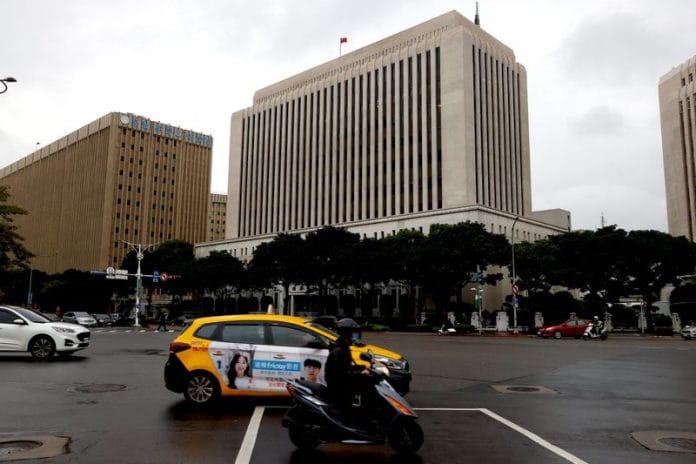TAIPEI (Reuters) – Taiwan’s central bank said on Friday it would begin incorporating climate change risks into its modelling and forecasts for inflation and economic growth and adapt monetary policy to promote sustainable development.
Taiwan said last year it intended to achieve net-zero emissions by 2050 and the government has pledged to spend T$900 billion ($29 billion) by 2030 towards that end.
The central bank, in a statement on climate change, pointed to the risk of “green swan” events, referring to an unexpected environmental catastrophe connected with global warming and pollution that would trigger a financial crisis.
Other central banks around the world have already incorporated global warming into their planning, and Taiwan would follow suit, the central bank added.
The bank said it would “incorporate weather factors into forecast models and analyse their impact on forecasts such as prices and GDP growth”.
The bank would also “establish an overall model related to climate change at the industry level” to gain an in-depth understanding of the impact of climate change risks on the economy and finance.
It added that it would use monetary policy tools to help promote sustainable financial development.
($1 = 30.7380 Taiwan dollars)
(Reporting by Liang-sa Loh; Writing by Ben Blanchard; Editing by Alex Richardson)
Disclaimer: This report is auto generated from the Reuters news service. ThePrint holds no responsibilty for its content.






